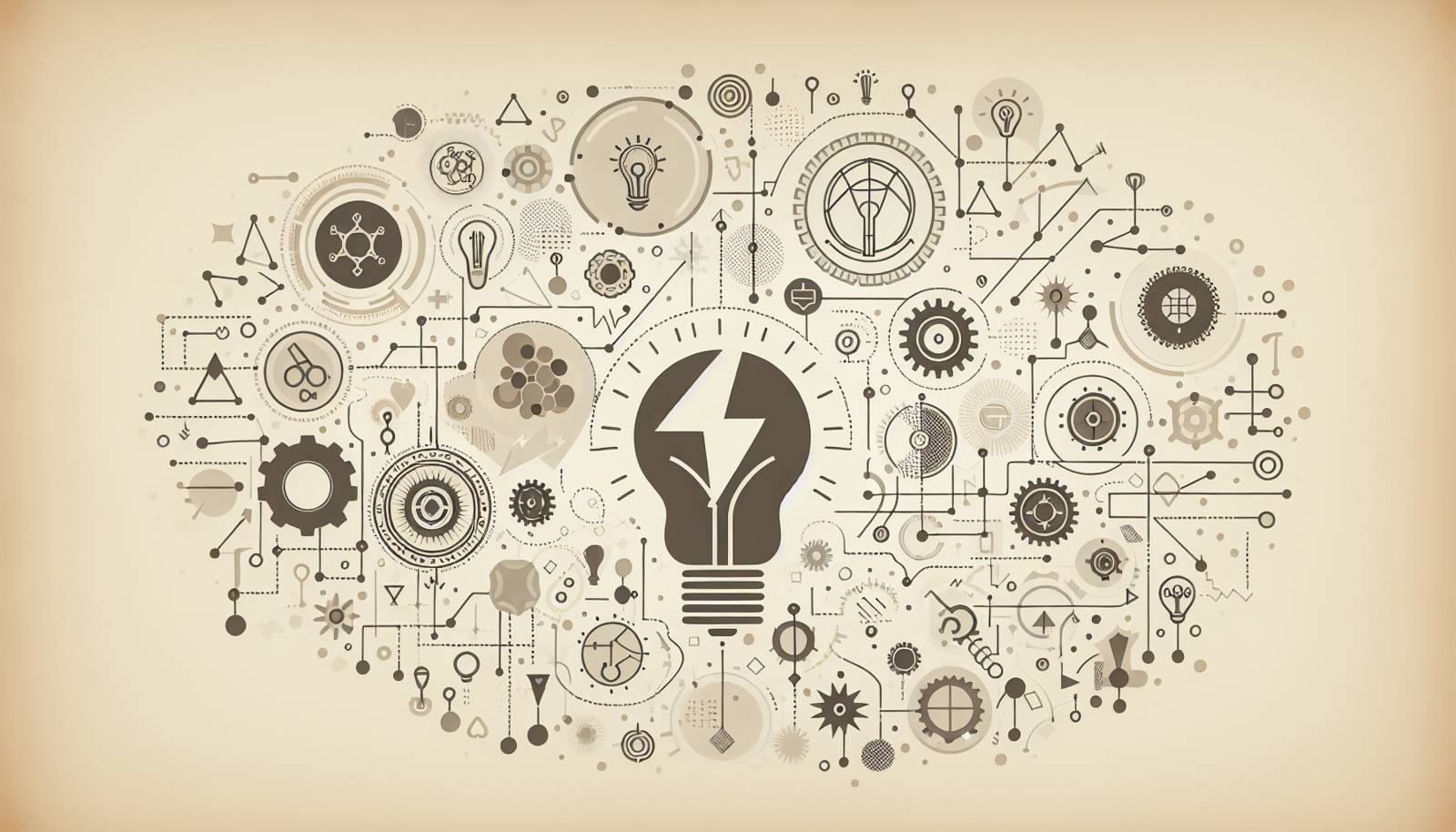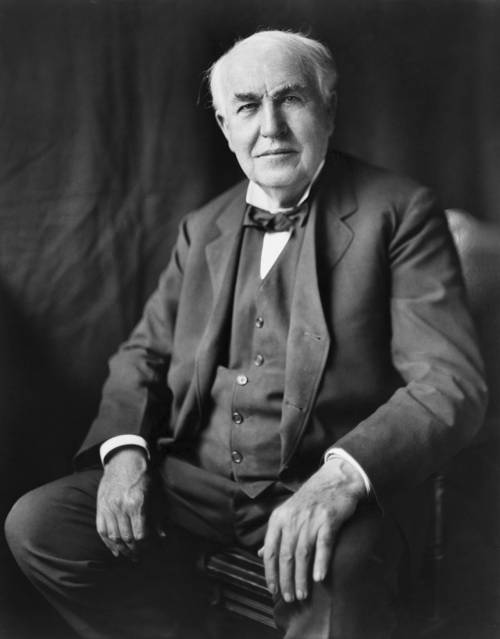
FAQ About Thomas Edison

Who was Thomas Edison?
Thomas Alva Edison was an American inventor and businessman, widely regarded as one of the most prolific inventors in history. He was born on February 11, 1847, in Milan, Ohio, and passed away on October 18, 1931. Edison holds over 1,000 patents and is best known for major inventions such as the phonograph, the motion picture camera, and the practical electric light bulb. His work in these areas had a profound impact on modern life and industry.

What is Thomas Edison famous for?
Thomas Edison is most famous for inventing the phonograph, developing a practical electric light bulb, and his work on motion pictures. Edison also created many innovations in electricity, and his establishment of the first industrial research lab helped foster future technological advancements. He played a pivotal role in shaping the modern industrialized world.

How many patents did Thomas Edison hold?
Thomas Edison held 1,093 patents in the United States. These patents cover a wide range of technologies, including electric power, communications, sound recording, and motion pictures, among others. Edison's ability to adapt his inventions for practical use made him a significant figure in the advancement of technology.

What was Thomas Edison's first major invention?
Thomas Edison's first major invention was the phonograph, developed in 1877. The phonograph was the first machine to both record and reproduce sound, which was a groundbreaking achievement at the time. This invention earned Edison the nickname "The Wizard of Menlo Park," reflecting the innovation and creativity that characterized his work.

How did Thomas Edison invent the electric light bulb?
Thomas Edison is credited with creating the first commercially practical incandescent light bulb. While not the first to create an electric light, Edison improved upon existing designs with more durable and longer-lasting filaments, leading to the successful commercialization of the light bulb in 1879. His work included the development of an improved vacuum inside the bulb and the use of a carbon filament, contributing to widespread adoption.

Where was Thomas Edison's laboratory located?
Thomas Edison's most famous laboratory was located in Menlo Park, New Jersey. Established in 1876, this lab became the first industrial research lab in the United States. It was here that Edison developed many of his inventions, including the phonograph and the carbon microphone used in telephones. Menlo Park became a symbol of innovation during Edison's time.

What impact did Thomas Edison have on the film industry?
Thomas Edison had a significant impact on the film industry with his invention of the Kinetoscope, an early motion picture device. Edison's company was responsible for one of the first motion picture studios in the world, contributing to the development of the film industry. Although Edison himself did not invent the moving picture, his work in creating technology to project and capture images helped lay the foundation for modern cinema.

Did Thomas Edison work alone on his inventions?
While Thomas Edison is often credited individually, he worked with a team of researchers and assistants in his various laboratories. His collaborative environment contributed significantly to his success. Edison was a skilled organizer and manager, which allowed him to effectively coordinate and execute large-scale projects with the help of others.

What challenges did Thomas Edison face with his inventions?
Thomas Edison faced numerous challenges, including technical hurdles, competition with other inventors, and the need for financial backing. Developing the electric light bulb required overcoming material science challenges to create a practical and long-lasting filament. Additionally, Edison frequently engaged in legal battles over patent rights, as competition in the prolific era of invention was intense.

What is the legacy of Thomas Edison today?
The legacy of Thomas Edison remains vast and influential. His inventions and innovations have become fundamental components of modern technology and everyday life. Edison's introduction of the industrial research lab model transformed how companies develop new technologies. His work not only boosted the industrial age but also inspired future generations of inventors and entrepreneurs.

How did Thomas Edison's electric power distribution system change the world?
Thomas Edison developed one of the first electric power distribution systems, making electric light and power widely available. In 1882, he opened the first commercial power station in lower Manhattan, New York City, providing electric power to homes and businesses. This system marked the beginning of the modern electricity distribution network and helped catalyze the widespread industrial and urban electrification.

What is the Edison Effect?
The Edison Effect is the phenomenon of thermionic emission, which Thomas Edison discovered while working with incandescent lamps. This effect involves the emission of electrons from a heated filament and ultimately led to the development of the vacuum tube, a critical component in early radios and electronic devices. Although Edison didn't fully develop this concept, it played a significant role in the field of electronics.

Did Thomas Edison invent the motion picture camera?
Thomas Edison did not invent the motion picture camera, but he did create a motion picture viewing device known as the Kinetoscope. Edison's notable contribution to films includes the work done by his company to develop and produce early film devices and films. The Kinetoscope allowed individual viewing of motion pictures, marking an essential step in the evolution of film technology.

How did Thomas Edison's education affect his inventions?
Thomas Edison had minimal formal education, attending school only briefly. He was largely self-taught and credited his lifelong curiosity and dedication to reading with fueling his inventive spirit. His education outside of the traditional classroom included conducting experiments in science and technology from an early age, cultivating his skills through practical experience and inquiry.

How did Thomas Edison contribute to communication technology?
Edison made several notable contributions to communication technology, including the improvement of the telegraph and the invention of the carbon microphone, which was used in early telephones. His innovations facilitated better sound reproduction and clearer audio, contributing to advancements in audio recording and broadcasting.

What role did Thomas Edison play in the development of the phonograph?
Thomas Edison invented the phonograph in 1877, which revolutionized the way sound was recorded and played back. The phonograph was the first device capable of both recording and reproducing sound, using grooves etched into a rotating cylinder. Edison's invention laid the groundwork for the modern music recording industry and had a lasting impact on entertainment.

What were some of Thomas Edison's lesser-known inventions?
In addition to his famous inventions, Thomas Edison developed several lesser-known devices such as the tasimeter, a sensitive instrument for measuring infrared radiation. He also worked on an electric pen, which was an early duplicating device. Edison's constant experimentation and wide-ranging interests led to numerous inventions beyond his well-known achievements.

How did Thomas Edison impact society beyond his inventions?
Beyond his inventions, Thomas Edison impacted society through his promotion of technology and innovation. His work laid the foundation for the modern industrial and electrical infrastructure. Edison's pioneering approach to invention management and research institutions influenced how companies operate today. Moreover, his relentless pursuit of practical applications for scientific discoveries resonated across various industries.

What was Thomas Edison's approach to problem-solving?
Thomas Edison had a systematic and experimental approach to problem-solving. He believed in trial and error and famously stated that "genius is one percent inspiration, ninety-nine percent perspiration." Edison conducted thousands of experiments to refine his inventions, embodying perseverance and adaptability in his efforts to innovate and develop practical technologies.

How is Thomas Edison remembered today?
Today, Thomas Edison is remembered as one of the greatest inventors of all time. His legacy persists in the technologies that form the backbone of modern life. Edison's story is often told as an embodiment of American ingenuity and the spirit of progress. His inventions continue to be celebrated for their profound influence on society and their enduring impact on the industrial world.
